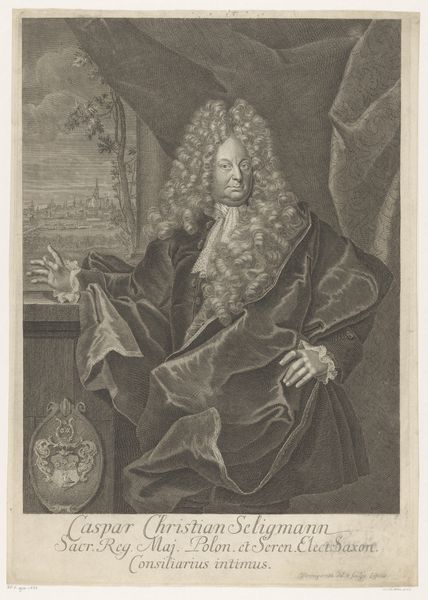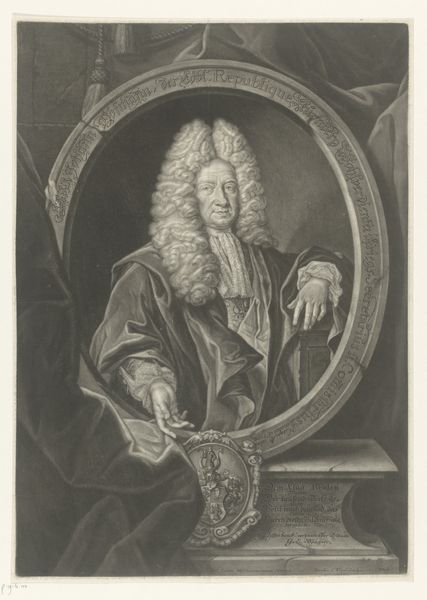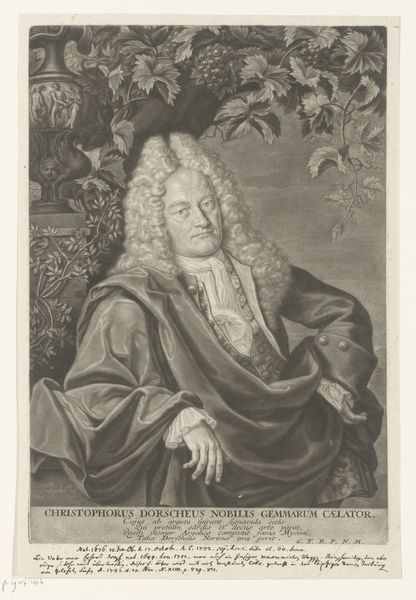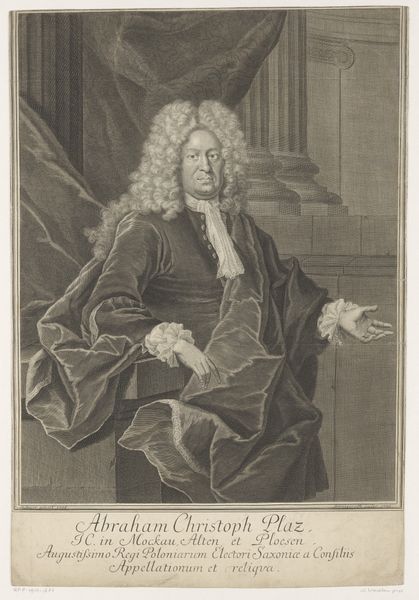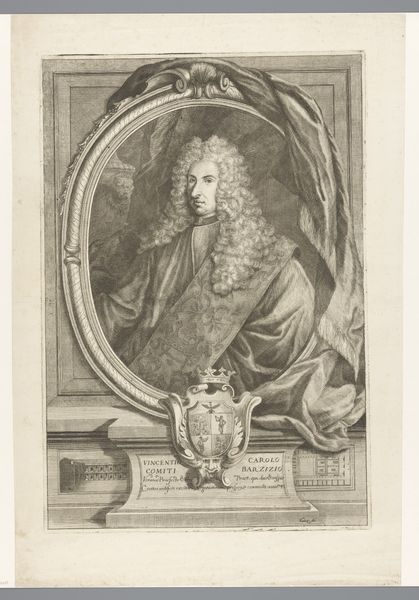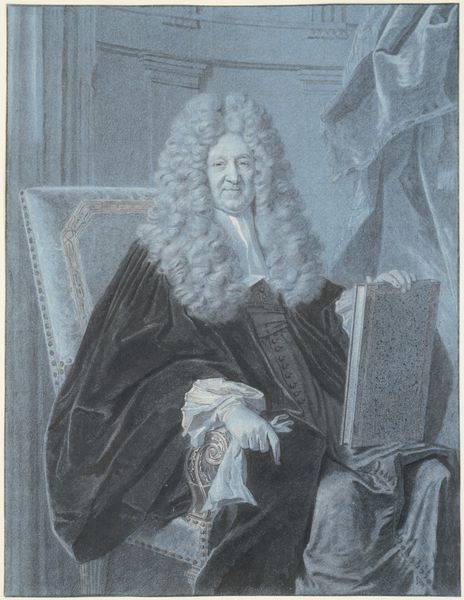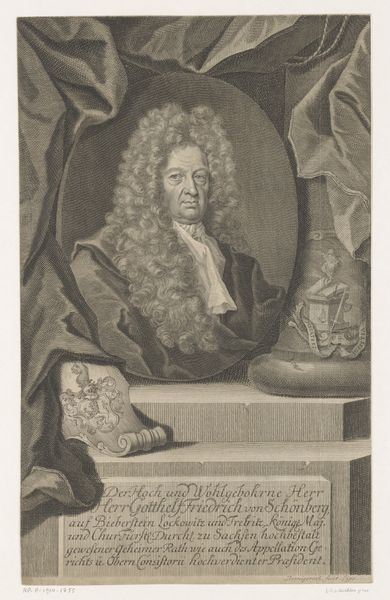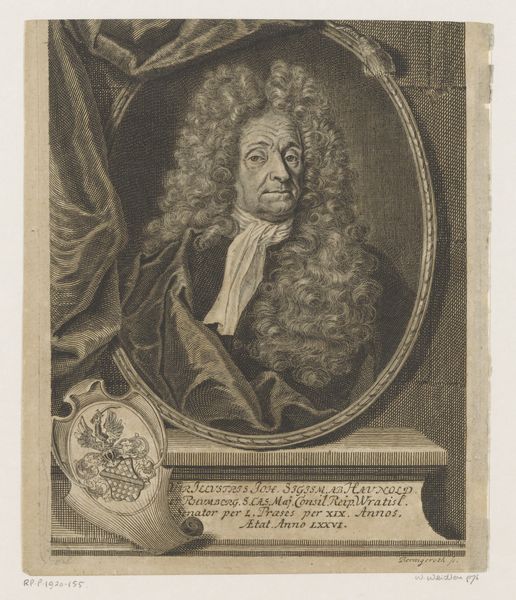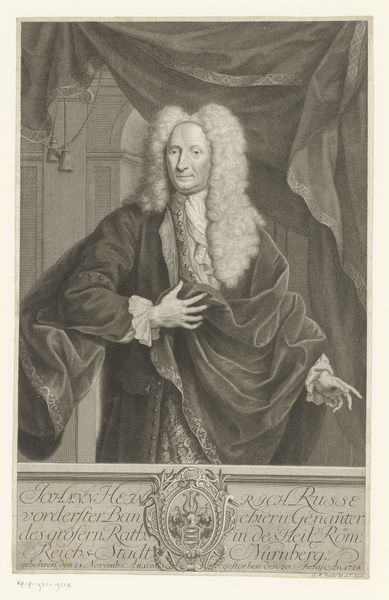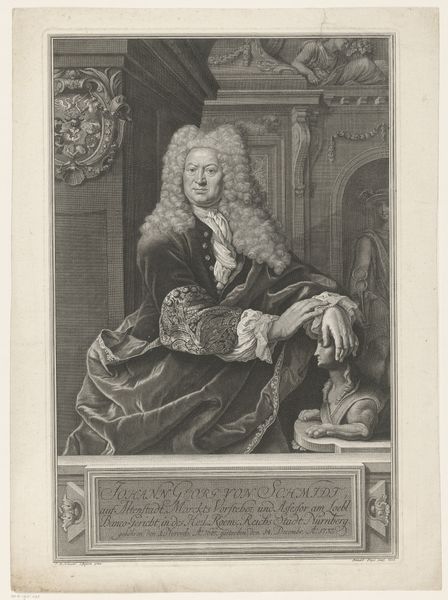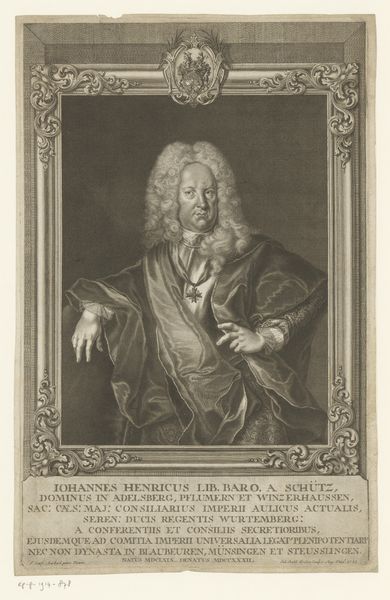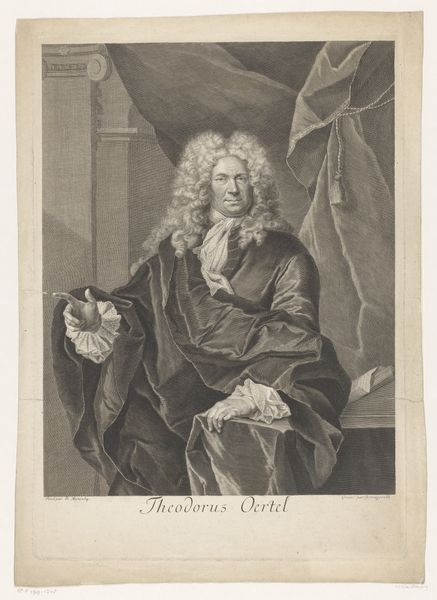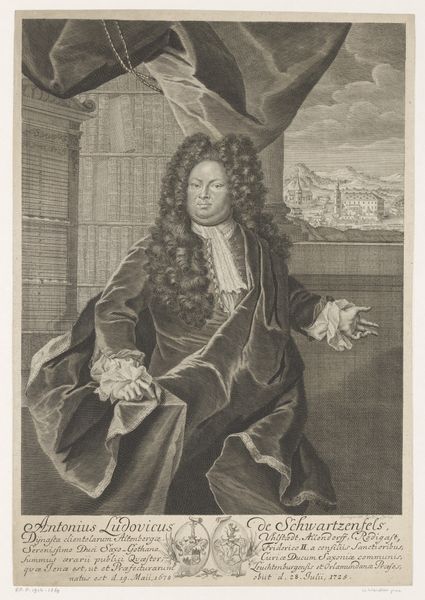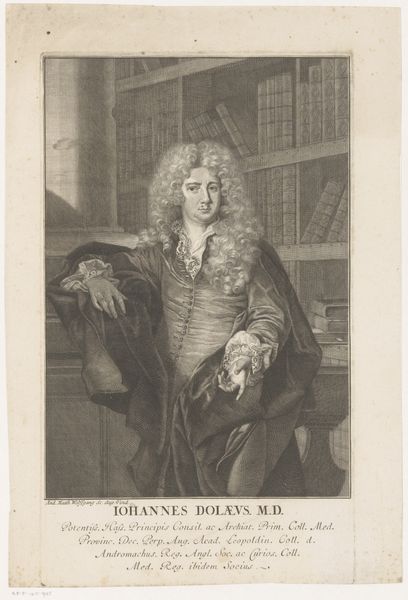
Portret van Franz Ernst, Reichsgraf von Platen-Hallermund 1723 - 1767
0:00
0:00
johannmartinbernigeroth
Rijksmuseum
engraving
#
portrait
#
baroque
#
old engraving style
#
history-painting
#
engraving
Dimensions: height 410 mm, width 292 mm
Copyright: Rijks Museum: Open Domain
This print of Franz Ernst, Reichsgraf von Platen-Hallermund, was made by Johann Martin Bernigeroth. It’s an engraving, meaning that the image was incised into a metal plate, likely copper, and then printed. Look closely, and you can see the lines of the engraving that define the Count’s features, his elaborate wig, and the drapery behind him. The depth and density of these lines create areas of shadow, giving the portrait volume and texture. This was an established, specialized process, an industry in itself. Prints like this one were luxury items, but they were also mechanically reproduced. This allowed for wider distribution of images, which had a democratizing effect. They made it possible for more people to have access to portraiture, a privilege that had previously been reserved for the very wealthy, as well as disseminating political and cultural information. Considering the material and the means of production allows us to think about this image not just as a portrait of an important man, but as an object deeply embedded in the social and economic life of its time.
Comments
No comments
Be the first to comment and join the conversation on the ultimate creative platform.
